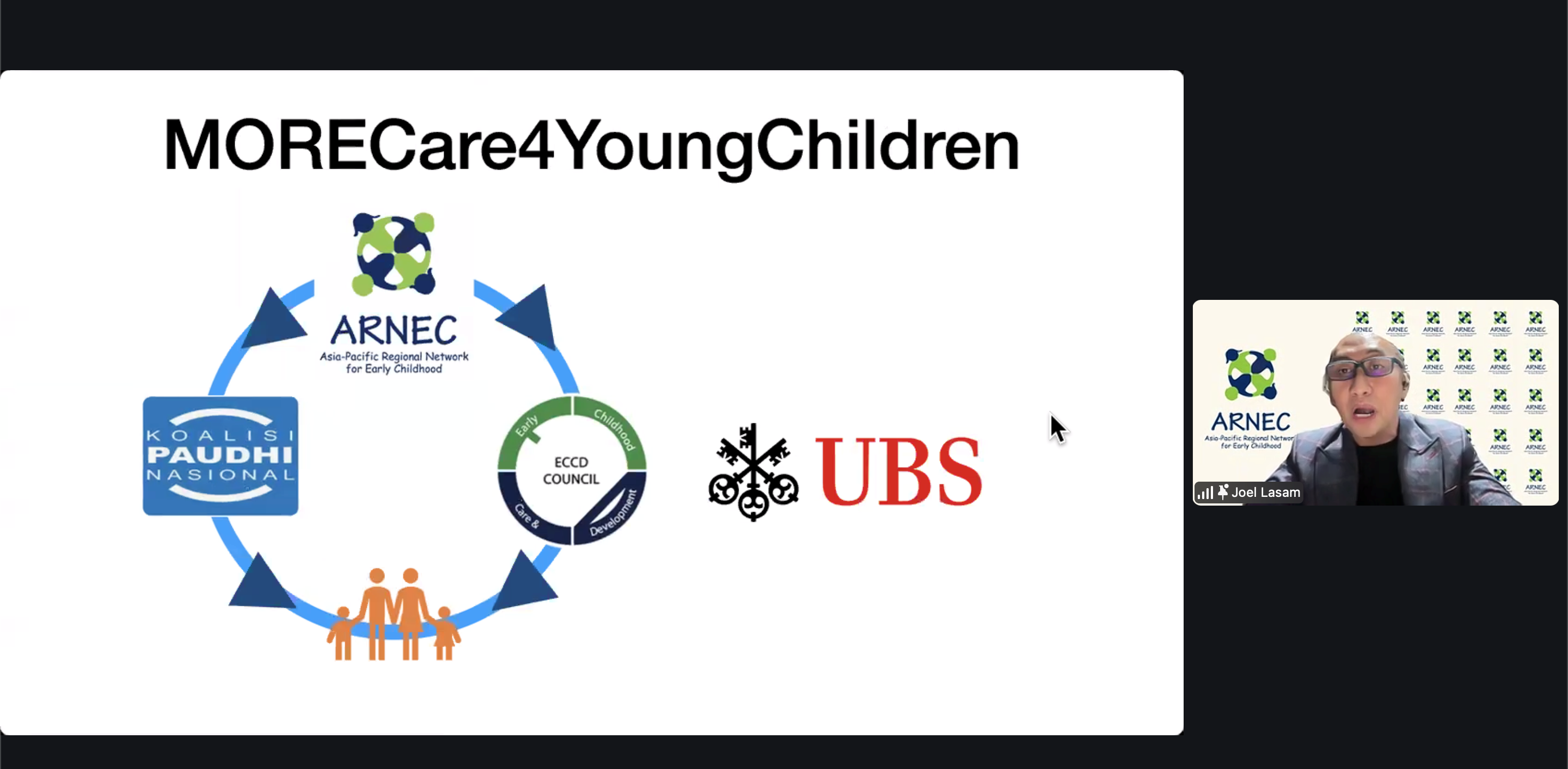ARNEC promotes evidence use in enhancing system-level change for parenting, caregiving in UNESCO Bangkok forum
Advocacy : Responsive Caregiving and Playful Parenting
UBS project in Indonesia, Philippines showcased
ARNEC collaborated with UNESCO Bangkok and the Knowledge and Innovation Exchange (KIX) Europe, Middle East and North Africa, Asia and Pacific (EMAP) Hub to host a webinar on 12 November 2025, advancing Early Childhood Care and Education (ECCE) in the Asia-Pacific region.
The webinar emphasised the role of evidence in transforming ECCE systems at the country level and presented the recently published Asia-Pacific ECCE Regional Factsheet and its call to action.
ARNEC participated in a roundtable knowledge sharing session where it discussed the implementation of the MORECare4YoungChildren Project supported by the UBS Optimus Foundation.
ARNEC showcased how context-specific data was generated to inform the design and implementation of government-led parenting and caregiving programs in pilot urban and rural local government units in Indonesia and the Philippines under the MORECare4YoungChildren Project.
ARNEC has partnered with the National Coalition of Holistic Integrative Early Childhood Development (HI ECD) in Indonesia and the ECCD Council of the Philippines to fulfill the objectives of the MORECare4YoungChildren Project.
In Indonesia, the design and implementation of the BKB EMAS, the government’s anti-stunting program for young children three years old and below, was enhanced focusing on improved parenting and caregiving practices based on evidence. In the Philippines, the implementation of the Infants and Toddlers Early Development (ITED) Program in diverse settings revealed community-specific information that enhanced the design and delivery approaches of the program in local governments.
ARNEC, drawing upon the lessons learned in Indonesia and the Philippines, cited the importance of embracing diverse starting points for ECCE reform, particularly at the community level.
This is because different stakeholders possess varying interests and capabilities in relation to parenting and caregiving. These should be considered when expanding the support base and mitigating local resistance to improving local ECCE systems.
Suitable solutions necessitate data and evidence, including the need for partners to be receptive to change or adjustment informed by emerging information. Under the UBS project, the MORECare4YoungChildren Project is assisting in the development of ownership and sustainability commitments from the Governments of Indonesia and the Philippines in introducing system-level changes based on implementation experience and knowledge.
Other speakers at the joint ARNEC-UNESCO Bangkok-KIX EMAP webinar included officials from the Ministries of Education of Uzbekistan, Sri Lanka, and Cambodia, who shared insights into the gains and challenges encountered in ECCE reforms. Additionally, program partners of UNESCO Bangkok and KIX EMAP, who are implementing ECCE projects in the Asia-Pacific region, were present.
Over 260 participants from 32 countries attended the webinar.
